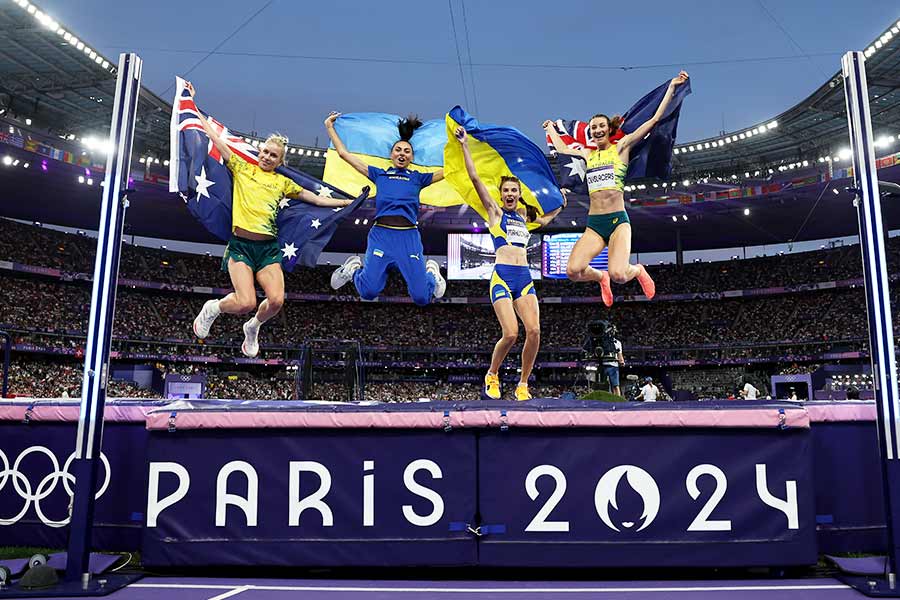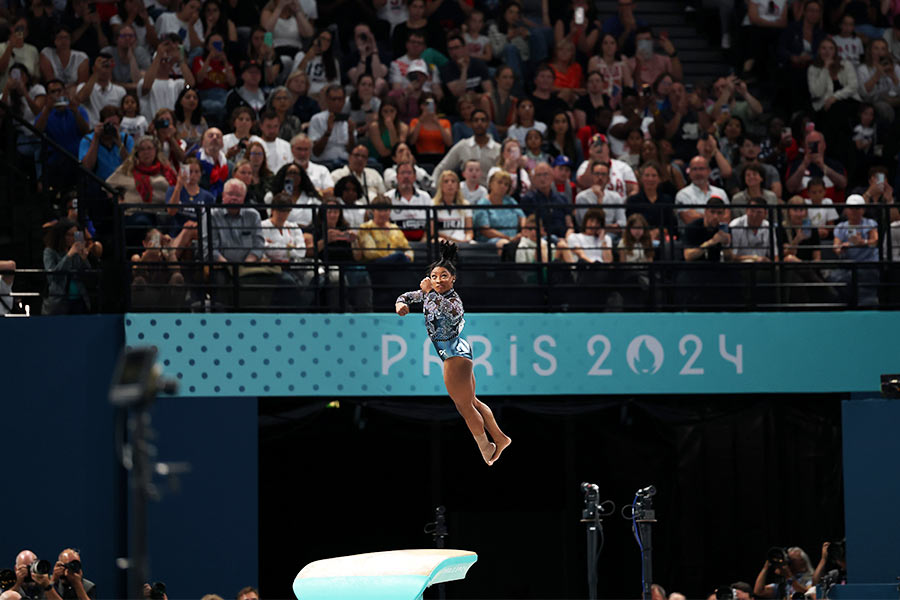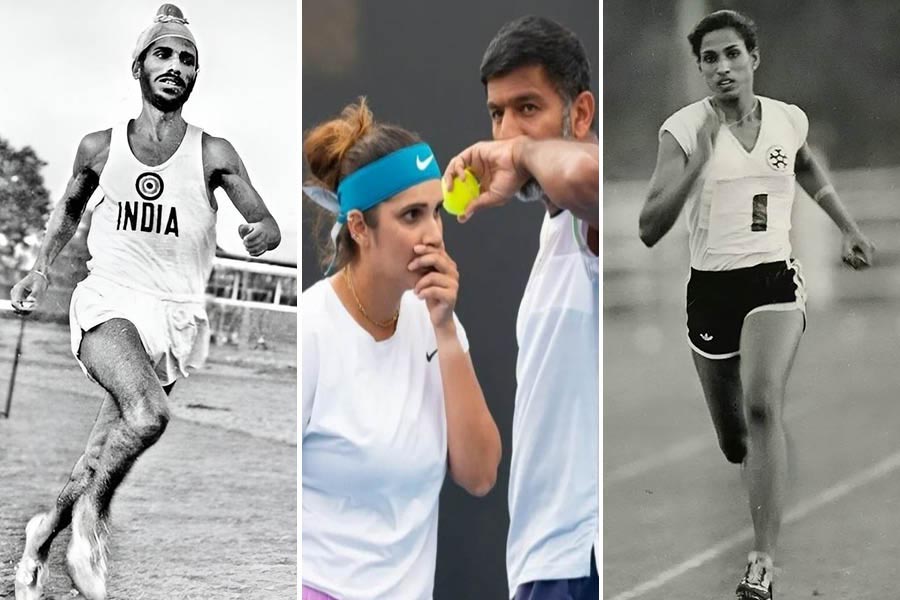Beauty lies in the courage and the audacity it takes to nurture a dream. It lies in victory and it lies equally in defeat. Beauty lies in the long, solitary hours of practice and perfection, and in the reverberating chants of thousands of spectators pulsating as one. The Olympic Games celebrate not only the potential and dedication that drive athletes to excel, but also the joy and passion they ignite in the hearts of sportspeople and armchair athletes alike. Here, in the Games, lies beauty.
My first introduction to the Games was cartoonish — quite literally. An avid comic reader, I devoured Asterix at the Olympic Games much before I followed the real Olympics. It was not until 2008 that I began to register vaguely that an extra day in February may no longer be the most important quadrennial event. During the London Games in 2012, I had begun, to my family’s rather short-lived delight, picking up the newspaper every morning and reading it from back to front (well, back to halfway, at least) to catch every bit of sporting news I could.
Michael Phelps had a vice-like grip on me. He was the closest I ever came to worship
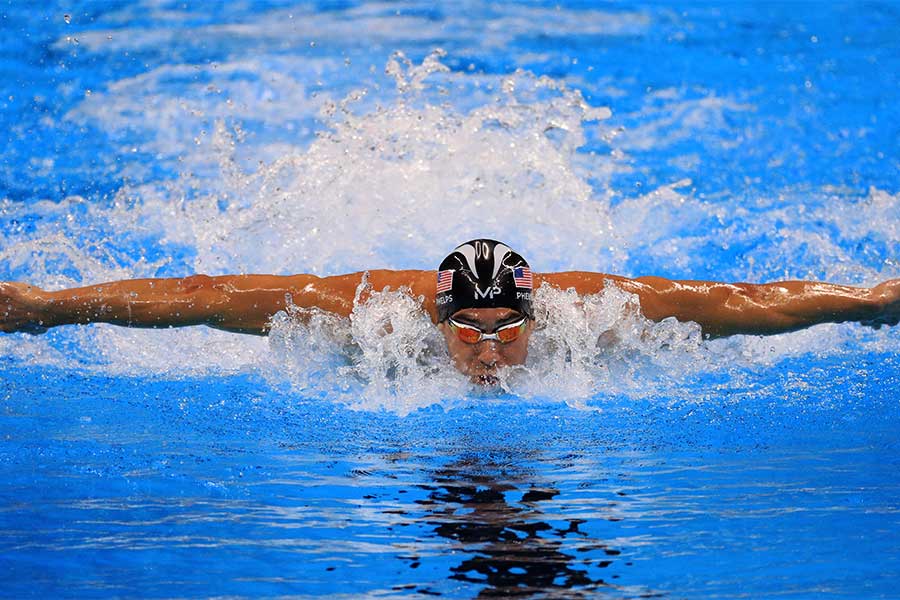
Michael Phelps won a total of six medals at Rio 2016, five of which were gold Getty Images
The 2016 Olympics in Rio de Janeiro, however, was where the fun began. It so happened that the peak of my amateur swimming career coincided with the trough of the greatest swimmer and, arguably, the greatest Olympian of all time. Michael Phelps had a vice-like grip on me. He was the closest I ever came to worship. Even after scrutinising countless replays in slow motion and injuring my shoulders trying to flap around like him on a starting block, I just couldn’t get enough of Phelps.
Patriotism was a factor I didn’t bother taking into serious consideration until the previous Games at Tokyo in 2021. It took a pandemic to kickstart the bildungsroman of my fandom for India, to the point where I was less… whitewashed, and more inclined to root for those representing the Tricolour.
The Olympics bring to the forefront sports and athletes who might otherwise never see the light of day
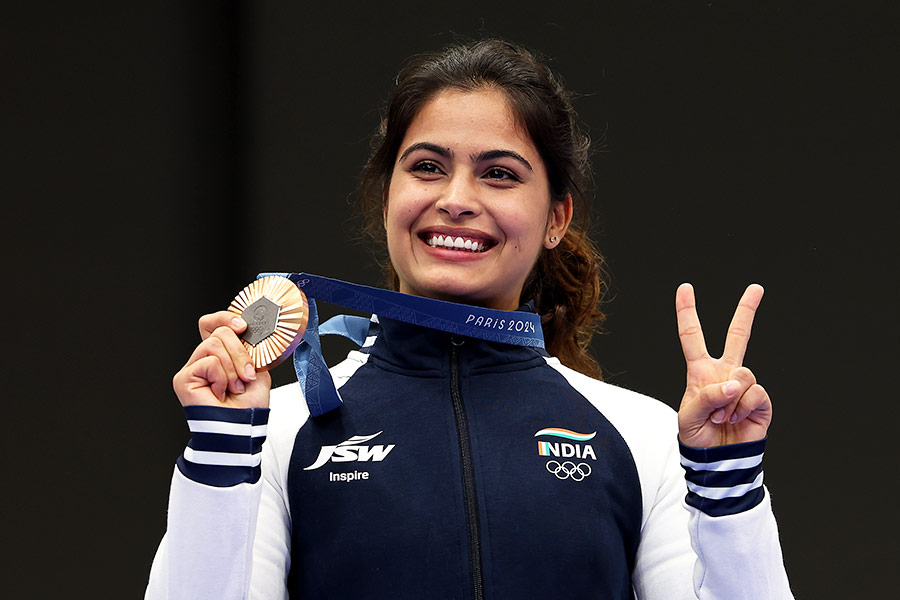
In Paris, Manu Bhaker had one of the busiest itineraries of any Indian athlete in Olympics history and won two bronze medals Getty Images
At their core, the Olympics are an extravagant display of the indomitable human spirit. Sport brings with it the licence to hyperbolise. During the Olympics, such hyperbolising (fittingly) reaches the heavens. Does the entire spectacle have billions of dollars splurged on it? Absolutely. But at least a significant portion of this money is spent on the development of unheralded names and not just the same bunch of 11-odd fade-cut bearded carbon copies of men.
Watching the Olympics, the relief is palpable at being able to experience sports coverage without the jarring interruptions of the IPL jingle every 15 minutes. The Olympics bring to the forefront sports and athletes who might otherwise never see the light of day. Momentary as it is, this exposure can be life-changing. Manu Bhaker is a shining example of how nine days at the Games can make one a national hero. But the Games matter not only to recognise achievers and encourage aspirants but also (inadvertently in many cases) spotlight the cracks and faults across the sporting infrastructure of our country. When India keeps finishing fourth in sports the country is trying to break new ground in, it provokes the question: could world-class training facilities have given Indians the edge that so many of their counterparts had? It’s not for nothing that the BCCI is planning to spend crores on a new academy that will have, among other things, an Olympic-size swimming pool.
Beyond national interest, the Games also play a big role in the deglamourisation of the West, which is still seen by many as the cradle of civilisation. For example, through Paris 2024, the world learnt that the Seine and the Ganga have a lot more in common than we ever thought, with leaders insisting on proving their purity through demonstrative dips.
Paris has upset the apple cart several times
At a personal level, these Olympics have seen me more involved than before, right from the controversy-laden tag of “The War Games” — should Israel even be here? — to logistical queries about whether Paris, already inundated with visitors at this time of the year, can pull this off? One of the enduring joys of these Games has come through unforgettable moments for underdogs. We all love a good, old-fashioned phoenix-from-the-ashes story, and so far, this edition has given us plenty to marvel about. From Lakshya Sen giving the defending champion a run for his money to Aussies wiping the smirks off American faces by restricting them to silver in one too many swimming events, Paris has toppled the apple cart several times.
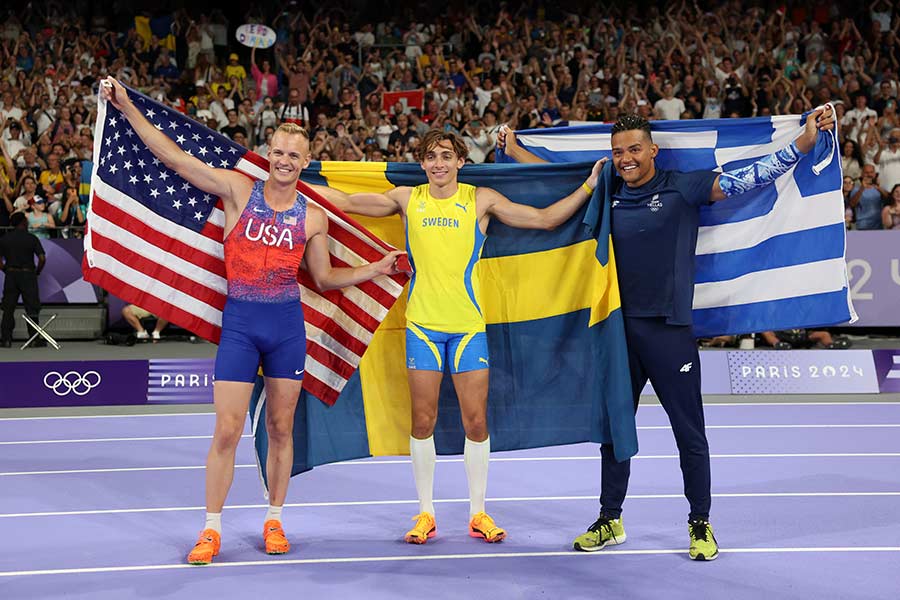
(From left) Sam Kendricks, Armand Duplantis and Emmanouil Karalis celebrate after the men’s pole vault final Getty Images
The Olympics have witnessed some of the most cut-throat rivalries in sports, marked by bared fangs and death stares galore. Yet, they also foster friendships and bonds that transcend competition. In the men’s pole vault final on Monday night, Sweden’s Armand ‘Mondo’ Duplantis launched himself into a new world record (breaking his own!), buoyed by the fervent support of Sam Kendricks of the US and Greece’s Emmanouil Karalis, who claimed silver and bronze, respectively. The three athletes cheered each other on in a heartwarming display of camaraderie, with Karalis even bandaging Duplantis’s bloodied finger before his record-breaking vault. The lump I had been nursing in my throat all night finally gave way when a sobbing Mondo collapsed into the jubilant arms of Kendricks.
Another highlight for me from earlier in the Games was Julien Alfred’s reserved and camera-shy demeanour in the women’s 100m final. Saint Lucia, a small island nation in the Caribbean, is known for its Nobel laureates, including writer Derek Walcott and economist Sir Arthur Lewis. However, it had never captured an Olympic medal. Until Paris. With quiet determination and no theatrics, Alfred rewrote history. She sped past a star-studded field, including the much-fancied Sha’Carri Richardson, to cross the finish line in a blistering 10.72 seconds, taking home the gold on the world’s greatest stage.
You have to take the Olympics in their entirety — powerful and full of grace, problematic yet larger than life
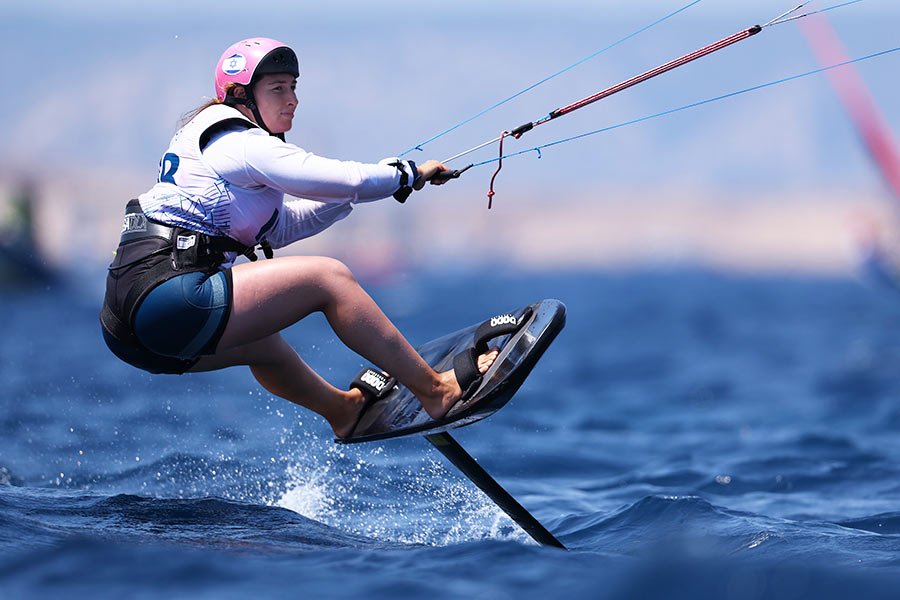
Kite sailing is among the more esoteric of Olympic sports
Above and beyond sporting excellence, the Olympics also unlock a gamut of little joys. Such as adding to your armoury more countries beginning with the letter A for the next time you play Atlas with your pesky younger cousin to having your pet doze off just when your adrenaline is shooting through the roof ahead of a key medal match! Time seems to warp and twist itself around you for a breathless fortnight.
The Games help bring families closer, with spoons tensely held halfway to mouths as a medal hopeful takes centre stage during dinner. Or as ambitious commentators make their bow with invisible mics in drawing rooms, converting couch surfers and pearl-clutchers into sporting Shakespeares. Whether you devour every single Olympics event or have a set of designated picks or have mastered the art of watching two sports simultaneously on two different devices, you have to take the Olympics in their entirety — powerful and full of grace, problematic yet larger than life. For all the questions and criticisms from naysayers, I urge you to allow yourself to be swept away by what this spectacle offers. To embrace the Olympics wholeheartedly and feel their incomparable magic.
And now, gentle reader, if you will excuse me, I must cut this Olympics paean short. The clock approaches two in the morning, and it’s time for me to first learn the rules of and then get intensely engulfed into the world of kite sailing. After which the subtle complexities of skateboarding await me, or perhaps the more alarming taekwondo? The night and the Games are still young, and we shall see where they take me. Until then, happy watching!
